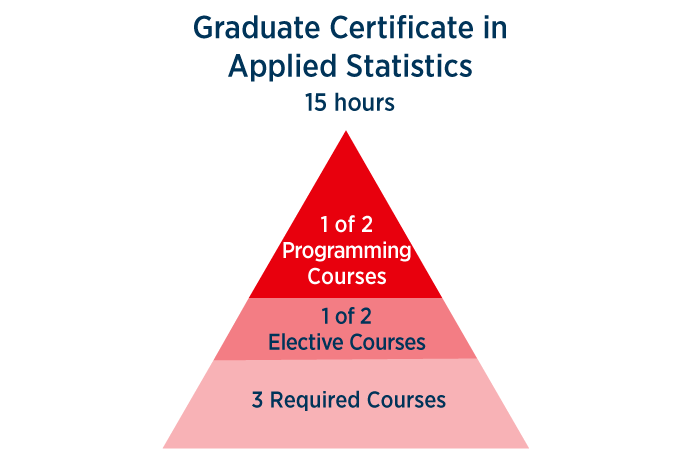
Manufacturing jobs come in many forms. These careers can range from assembly, fabrication, tool and die making, operations, quality control, and logistics. A career in advanced manufacturing may be a better choice, as it offers greater challenges and higher wages, as well as the possibility of a successful life. You will find information about the training options for these jobs in this article. These are the most popular manufacturing jobs. These are just a handful of the most common manufacturing jobs.
Careers in manufacturing include assembly, fabrication, production, logistics, management, metalworking, tool and die making, operations, quality control, processing and more
There are many types of manufacturing jobs. Many of these jobs require advanced technology skills and comfort with the internet. The job descriptions will require that you are organized, detail-oriented as well as logical. Although automation doesn't replace human workers, it has altered the skills needed for workers. The demand for professionals in manufacturing is high and wages are usually higher than in other professions. Manufacturing employees are often eligible for retirement benefits and insurance.
Manufacturing also includes the fabrication and modification of apparel, tools and machines as well as the maintenance and repair of industrial equipment and instruments. Many jobs in this field require knowledge of physical quantities such as stress, strain, vibration frequency, and pressure. Mechanical engineers, textile technicians, and packaging technologists all work with machinery and equipment, and need to understand both mechanical and electrical processes.
Every worker in a manufacturing organization shares the responsibility of quality control. Quality control workers are responsible for monitoring production processes and ensuring that each product meets company specifications. They may also be responsible for overseeing quality control processes and providing feedback to employees. You can advance your career with a quality control job in manufacturing.
Advanced manufacturing jobs require more work, but better pay and a lot of success.
The life of an advanced manufacturer offers greater challenges, higher pay, and better job prospects. This fast-growing industry relies on technology and innovation for its advancement and better products. To be successful in advanced manufacturing, you need to have a commitment for life. However, the rewards are well-worth the risks. These jobs suit the innovative and creative person who enjoys challenging work. The future of manufacturing will be dominated by women.

For advanced manufacturing jobs, a college degree is required. A post-secondary certificate may also be sufficient. Manufacturing-focused higher-ed programs introduce students to cutting-edge manufacturing technologies and methodologies. These programs may include supply chain logistics and green manufacturing. These programs offer graduates in-demand skill development. Advanced manufacturing jobs offer greater salary and benefits as well as a lifetime of satisfaction.
An Advanced Manufacturing Engineer's salary is more than a Design Engineer. Advanced Manufacturing Engineers have a greater focus on process capability and design than they do on engineering. Advanced Manufacturing Engineers can have a greater skill set, such as solidworks and layout. However, they tend to earn more in the Technology industry. They can also enjoy life satisfaction by meeting challenging deadlines and making a difference in the lives of other people.
For a job in manufacturing, you will need to train.
There are many options for training to help you get the education and training you need to be a successful manufacturing career. There are many career options in the manufacturing industry and high demand for skilled workers. Although manufacturing was once associated with unskilled workers and dark factories, modern manufacturing is an industry that has many exciting career opportunities. This field is highly creative, lean, green and high-tech.

An electrical certificate is required to start your training as an assembler. You can further your skills by becoming a machinist or welding specialist, or as a quality controller specialist. The manufacturing industry needs many workers. You could even become a manager. Your career as a manufacturer can help you increase your earnings.
A factory entry-level job is another way to learn manufacturing skills. Hudson Valley Community College has partnered up with many manufacturers to offer its Entry Level Training Program to anyone looking for an entry-level position. The Workforce Development Institute of New York partially funded this project. It includes online classes and hands-on training. This program is perfect for individuals who don't have a lot of time for a full certificate or degree program.
FAQ
What are the essential elements of running a logistics firm?
To run a successful logistics company, you need a lot knowledge and skills. You must have good communication skills to interact effectively with your clients and suppliers. It is important to be able to analyse data and draw conclusions. You need to be able work under pressure and manage stressful situations. To increase efficiency and creativity, you need to be creative. Strong leadership qualities are essential to motivate your team and help them achieve their organizational goals.
You should also be organized and efficient to meet tight deadlines.
What does the term manufacturing industries mean?
Manufacturing Industries are companies that manufacture products. The people who buy these products are called consumers. These companies employ many processes to achieve this purpose, such as production and distribution, retailing, management and so on. These companies produce goods using raw materials and other equipment. This includes all types of manufactured goods, including food items, clothing, building supplies, furniture, toys, electronics, tools, machinery, vehicles, pharmaceuticals, medical devices, chemicals, and many others.
What makes a production planner different from a project manger?
A production planner is more involved in the planning phase of the project than a project manger.
What are the four types of manufacturing?
Manufacturing refers to the transformation of raw materials into useful products by using machines and processes. It includes many different activities like designing, building and testing, packaging, shipping and selling, as well as servicing.
Statistics
- [54][55] These are the top 50 countries by the total value of manufacturing output in US dollars for its noted year according to World Bank.[56] (en.wikipedia.org)
- In 2021, an estimated 12.1 million Americans work in the manufacturing sector.6 (investopedia.com)
- According to a Statista study, U.S. businesses spent $1.63 trillion on logistics in 2019, moving goods from origin to end user through various supply chain network segments. (netsuite.com)
- Many factories witnessed a 30% increase in output due to the shift to electric motors. (en.wikipedia.org)
- According to the United Nations Industrial Development Organization (UNIDO), China is the top manufacturer worldwide by 2019 output, producing 28.7% of the total global manufacturing output, followed by the United States, Japan, Germany, and India.[52][53] (en.wikipedia.org)
External Links
How To
How to Use the 5S to Increase Productivity In Manufacturing
5S stands for "Sort", "Set In Order", "Standardize", "Separate" and "Store". Toyota Motor Corporation created the 5S methodology in 1954. It improves the work environment and helps companies to achieve greater efficiency.
This method aims to standardize production processes so that they are repeatable, measurable and predictable. It means tasks like cleaning, sorting or packing, labeling, and storing are done every day. Workers can be more productive by knowing what to expect.
Implementing 5S requires five steps. These are Sort, Set In Order, Standardize. Separate. And Store. Each step involves a different action which leads to increased efficiency. Sorting things makes it easier to find them later. When items are ordered, they are put together. After you have divided your inventory into groups you can store them in easy-to-reach containers. Finally, when you label your containers, you ensure everything is labeled correctly.
Employees need to reflect on how they do their jobs. Employees should understand why they do the tasks they do, and then decide if there are better ways to accomplish them. They will need to develop new skills and techniques in order for the 5S system to be implemented.
In addition to improving efficiency, the 5S system also increases morale and teamwork among employees. They are more motivated to achieve higher efficiency levels as they start to see improvement.